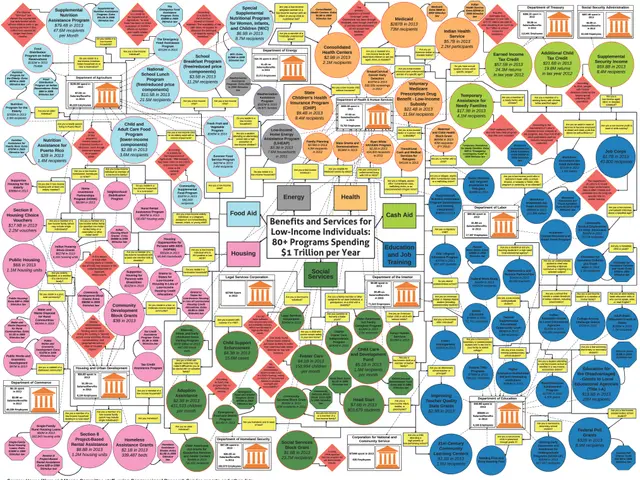Insights Gleaned from a Mindset Mentor: 8 Crucial Lessons
In the realm of personal development, mindset coaching has emerged as a powerful tool for self-improvement, gaining significant traction in recent years, particularly since the pandemic. This article delves into the world of mindset coaching, exploring its origins, key figures, and practical applications.
The concept of mindset coaching was popularized 30 years ago by self-styled guru Tony Robbins. The idea is simple yet profound: understanding the potential of one's mind and learning how to communicate effectively with oneself.
One of the key principles of mindset coaching is the Reticular Activation System (RAS), a brain filter that brings more of what one thinks about to one's attention. By focusing on one's strengths, goals, and reasons to be grateful, the RAS can bring more of those things into one's mind.
A prominent figure in the mindset coaching world is Camilla Dallerup, a former dance pro on Strictly. Dallerup, who had a sports psychologist at the age of 16, credits her dance coach with teaching her how to visualize success. For Dallerup, competing was 40% about dancing and 60% about mindset. In her twenties, she was inspired by books from personal development guru Tony Robbins.
Dallerup, now based in LA, offers practical advice for navigating daily life. She encourages daily self-check-ins to stay focused on personal goals, suggests reframing a 'bad day' as an opportunity to improve the rest of the day, and recommends having three daily non-negotiables to feel positive and calm. She also advises speaking to oneself as one would to a best friend during challenging situations.
Another influential figure in the mindset coaching world is Leanne McCafferty, the founder of Mind Your Mindset. McCafferty emphasizes the importance of journaling daily wins to improve confidence and recommends using mind mapping to make difficult conversations easier. She also encourages daily self-check-ins to stay focused on personal goals.
The practice of mindset coaching has also found a home in elite sport, where athletes have realized that success is as much about training the mind as the body. In fact, mindset coaching intersects with NLP (neuro-linguistic programming), a technique used to influence both communication and personal thought patterns.
Paul Sculfor, a former boxer and model, is another mindset coach who works with Hollywood stars and civilians alike. Sculfor emphasizes the importance of understanding one's values to make life choices and being mindful of one's self-talk, speaking to oneself positively.
The origins of the growth mindset, a central concept in mindset coaching, can be traced back to the 1970s, when Stanford University psychologist Carol Dweck first researched the concept. Dweck's work has since had a significant impact on the field of education and personal development.
In conclusion, mindset coaching offers a powerful tool for personal growth, helping individuals uncover limiting and negative beliefs to find their true values. Whether you're an athlete, a Hollywood star, or simply someone looking to improve their life, mindset coaching could be the key to unlocking your potential.
This article was written by Kerry Potter, GTG Deputy Editor, an expert in health, longevity, fitness, and sport.
Read also:
- Peptide YY (PYY): Exploring its Role in Appetite Suppression, Intestinal Health, and Cognitive Links
- Toddler Health: Rotavirus Signs, Origins, and Potential Complications
- Digestive issues and heart discomfort: Root causes and associated health conditions
- House Infernos: Deadly Hazards Surpassing the Flames








